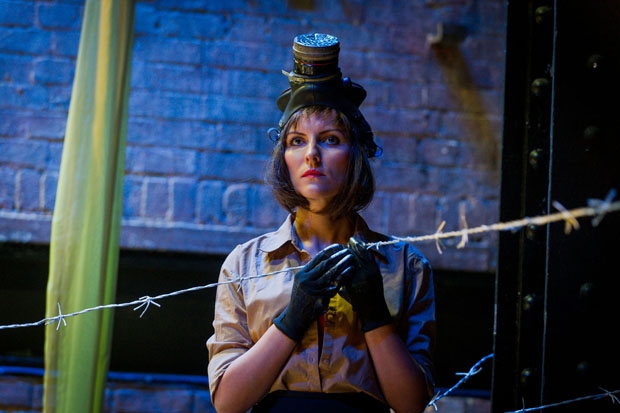Richard Strauss’s Daphne is one of the operas he wrote during the excruciatingly long Indian summer of his composing life, where he seems, in one work after another, to be looking for a subject worthy of his skills, and only finding one in Capriccio, his last opera. For that, he and his ideal interpreter Clemens Krauss collaborated on a libretto that, while garrulous, has a real topic to deal with, and handles it with no portentousness or pseudo-depth. None of that can be said about the depressing series of operas he composed in the 1930s, which either have a serious topic to deal with but not the drama or the music to do it justice, or are nothing more than word- and note-spinning. Adequate librettists seem to be the rarest of all contributors to operatic history; on a generous count I can think of five.
Joseph Gregor, Strauss’s librettist for Daphne and its predecessor Friedenstag, emphatically is not one of their number. A scholar of drama, he was unable to originate any, and staggered from cliché to cliché. Strauss knew it, but carried on. Daphne, originally to have been part of a double bill, certainly drew the superior music from him, but it is still, compared with his lusty prime, insipid stuff. That might not be surprising, given that it is a pastoral and that its heroine achieves happiness by turning into a tree, thus avoiding repulsive contact with human beings, and even a god in disguise. You can say that it’s good to be at one with nature, but having people pick your leaves could be felt as taking it too far.
The opera begins charmingly, with an oboe playing a characteristically Straussian theme, the trademark flick at its centre. That turns out to be Daphne’s motif, and so pervades the score, which continues in this pastel-shaded mode for some time. But Strauss is not the man to deny himself the odd noisy climax, and they come along fairly often, as you might expect when Apollo appears, with thunder and lightning. As so often, Strauss seems to have written most of the opera for the sake of the last few minutes, where he achieves his own superb variety of peace and fulfilment. As Daphne becomes a laurel tree, and her words give way to ululating sounds, it all seems almost worth it.
Until this year’s Grimeborn opera festival, I don’t think I have ever seen or heard a performance of a Strauss opera on a shoestring with only a piano accompaniment. Now that I have, I’m not eager to give it a second go. I’ve been reading various Strauss enthusiasts on Daphne, and they agree that while it lacks many of the things one hopes it would have, it does, as always, score high on orchestration. The various pastoral tints are irresistible, enchanting, bewitching and so forth. Everything that a piano, especially one in a super-resonant space, couldn’t hope to convey. That seems so obvious that it is hard to see why anyone should be so quixotic.
Grimeborn, I take it, is meant to recruit new audiences for opera, and if you look down the list of productions this year — an ambitious 12 — it consists mainly of new works which are unlikely to be heard again (I base this entirely on past experience) together with the inevitable couple of Puccini operas to get it underway and close it. The Arcola Theatre (more of a concept really than a thing) now has seats on four sides, with projections on one wall giving a general indication of what will be going on for the next quarter of an hour. The set — a brown leatherette sofa and three drapes — apparently suggests Nazi Germany rather than mythic Greece, and the males are foolishly dressed, while Daphne, her mother Gaea and her maids are in white robes.
The performance was in German, but the echo factor made the voices sound too loud, mostly, and unintelligible. Several of them are probably very good, including Justine Viani’s Daphne and John Upperton’s Apollo. But the whole charm of the work, the voices sailing above the orchestra, the contrasting colours of timbres, simply could not be conveyed by such means. Sad, but a lot of wasted effort.






Comments